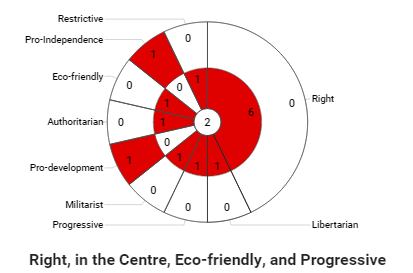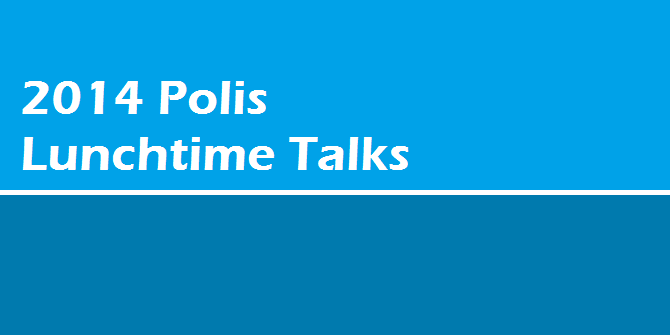This article is by Polis Intern and LSE MSc student John Ray on a presentation given by PositionDial founder Mariam Cook.
As a child growing up in the United States, I remember asking my mother why she wasn’t voting for Ralph Nader in the 2000 Presidential Election. Nader, remembered today as “the reason why Al Gore lost”, was a progressive politician who ran as a Green Party candidate and my mom, a leftist single-mother, was ideologically much closer to him than Gore (something even a nine year old could recognize). But my Mom responded, “because I’m a Democrat (the equivalent of Labour), I’ve always voted Democrat, and they need me more”. The latter statement proved true, but the ones that preceded it stuck with me as problematic.
Why are our political identities so bound in to institutions that betray our interest? Why hasn’t the greater access to information afforded by the Internet resulted in a political system that is more representative of its constituents? Answering theses questions of trust and navigation, respectively, is the goal of PositionDial, a British political tool that helps users locate their stances on issues on the political spectrum and identify the politicians that most coincide with these positions.
In a talk at LSE, PositionDial founder Miriam Cook, laid out the theoretical underpinnings of the platform and appealed to Chantal Mouffe’s idea of agnostic pluralism. This concept insists that passionate debate is critical to political progress and Cook recognizes that the current digital paradigm has not done enough to incorporate the difference of opinion into the presentation of information. She particularly decried the “filter bubble” (a term coined by Eli Pariser), which represents the increasing tendency for online websites to present tailored information that agrees with our online history.
PositionDial, Cook argued, could be a solution; the platform uses aggregated data from a number of sources, private and public, to portray a spectrum of political opinions. Most of the data that they use – things like Oxfam’s brand index, voting history, and politician comments – are publically available, but buried in the endless scrolling and boredom that have come to define much of web data. By developing an algorithm to attach this wealth of data to political positions and then present it on the dial (seen below), they hope to make political reality more legible.

But the presentation of this information, ironically, is where PositionDial still has work to do. It’s easy, currently, to find one’s own political position, but the counter-arguments to those positions are not readily available on the website. One of the goals of PositionDial is to challenge our preexisting notions and facilitate a greater level of political debate. It’s difficult to argue that it does that in its current state.
PositionDial will also have to continue to position itself. Does it want to be a political affiliation test, as it largely is in its current state, or does it want to aggregate and present political information in a meaningful way? The individual side of the experience is currently more developed than the educational. In the current iteration of PositionDial we are able to learn more about ourselves and the MPs that agree with us, but not about the world in general. Many of the positions that you are asked to weigh-in on provide an article, but they’re not yet presented in a compelling manner.
Despite this criticism, PositionDial is still young and is conceptually exciting in the way that the American political fact-checking site Politifact was in the past. A simple implementation of MP searching and “standard party values” (a mean of the political opinions in each party) on the current site would allow for visitors to understand their own opinion, each party’s values, and the ways in which each MP diverges from those values. A debate section below each question could present two or more relevant articles on the topic from either side of the debate and a key quote from each. The political problems that PositionDial attempts to correct are digital navigation and the eroding trust in political leaders; the fixes suggested above would allow for various points of view to be presented in one place and politicians to be held accountable for their voting records and compared to the electorate that they claim to represent – a valuable tool indeed.
One of the questions

PositionDial, in its present state, is still rather engaging. After clicking around on the website for about an hour and weighing in on a variety of statements from, strongly agree to strongly disagree, I found much of what I already knew about myself (Leftist, progressive, anti-militarist), but, more importantly I was also able to identify the topics that I was conservative about and engage with them on a deeper level. It’s the positions that contradict one’s typical values that often provide the greatest level of insight into one’s person. Also it was quite fun to use.
This article is by John Ray





